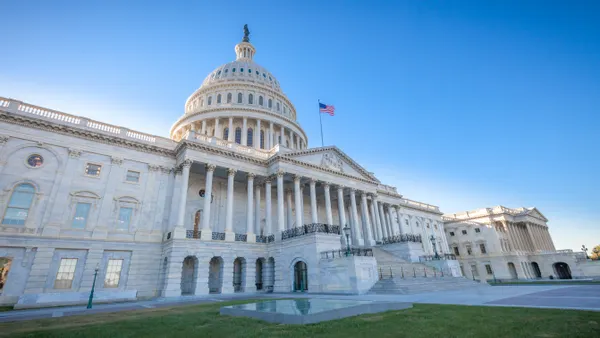Dive Brief:
- According to a recent survey from Morning Consult, travelers prefer using search engines over generative AI tools, such as ChatGPT, when it comes to planning trips.
- Thirty-seven percent of the U.S. adults surveyed said they use an internet search engine “often” when searching for and booking accommodations, visiting an average of two to three websites or apps.
- Reliance on search engines suggests consumers want to retain a sense of control over their travel search and booking process. In order for generative AI tools to truly disrupt the industry, these new tech solutions need to earn travelers’ trust.
Dive Insight:
Despite the early buzz around generative AI and its potential to upend the travel search and booking process, consumers have yet to fully adopt the new technology. Instead, they continue to prefer search engines to gather information from multiple sources before making a decision.
A big reason for this is price. Travelers want to ensure they’re “getting the best value, finding the cheapest option or avoiding hidden fees” when it comes to booking accommodations, said Lindsey Roeschke, Morning Consult lead travel and hospitality analyst, in the report, which surveyed 2,207 U.S. adults in June.
Of those surveyed, 66% said the reason they would choose to book accommodations using a particular platform is because it offers the best value for their money. Following that, 59% said they would choose a platform because it offers the cheapest price. Fifty-eight percent said trust is a major reason they would book accommodations with a specific platform, and 57% said they would book with a platform that has no hidden fees.
By generation, millennials use internet search engines the most to find and book accommodations (45%), followed by Gen Xers (40%). Across all consumers surveyed, just 6% said they use generative AI tools to find and book accommodations — ranking it as their least-used resource.
Though 47% of respondents said they typically visit multiple sites or apps when searching for and booking leisure travel, consumers still prefer to book directly through a provider’s website — specifically via the website over the mobile app. In light of this, Morning Consult’s report recommends travel brands target their app functionality on searching for and comparing travel options and optimize their websites for booking purposes.
In the report, Roeschke speculates that consumers prefer websites because of perceived pricing transparency and booking terms. Booking via website also gives travelers a direct line to the company in case of any changes.
Overall, the survey shows travelers need to be able to trust the resources they use to plan and book trips. This is especially true for generative AI tools and supports recent study findings from the University of Houston on hotel guests’ acceptance of AI-based systems.









